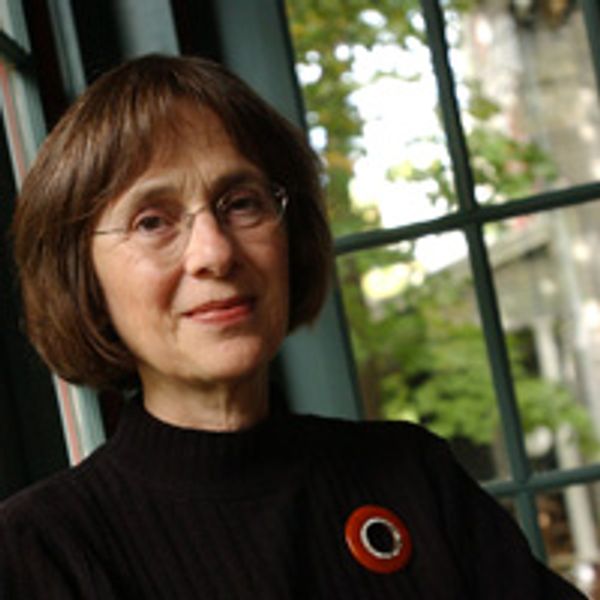Lia Purpura, Parasol Mushroom (detail), featured in AGNI 102
I’m a Stranger Here Myself
Sometimes when you stop for directions,
when you ask someone who doesn’t look
threatening or threatened the way to a gas
station or restaurant, the person stares at you,
dumbly, or seems apologetic or guilty,
and says these words as if they’d been
scripted: I’m a stranger here myself—, shaking
her head, or his head, and you’re especially struck
by the bond between you, your strangeness,
and the town, or city, changes to unnumbered
anonymous facades, but generic, unmistakably
New England—white clapboard houses, black shutters;
or Texas storefronts—low porches, two-by-four columns,
longhorn arches; or even Southern California,
the faces its bungalows make, the expressive mouths
of, say, Los Angeles doors—and suddenly you want
to live there, wherever there is, to belong
in one place, to read the surviving daily,
you want to get a grip on the local mores,
to pay taxes, to vote, you want to have cronies,
be tired together in the Stormy Harbor
Coffee Shop, to be bored with the daily specials:
you want not to be like him, or her, not the outsider
who’s never sure where things are; so you say,
“Thanks, anyway,” and find the worn face of a
native who’ll point you to a real estate office,
which hadn’t been where you were going—
But then, you stop cold, scared, wanting
only your own room, the books under the bed,
the pencils, the snapshots, what’s left
of your family, the dead flies on the windowsills,
the exhausted scorched-coffee smell of your city,
familiar as your own particular dust—and you turn
on a dime, shaking off Church Street and School Street,
the allegorical buildings, the knick-knack bookshelves
in the glowing blue family rooms blind to the moonlit
Main Street night, the lonely, confused, censorious
American-ness of places you drive through, where
you can get ice cream or a flat fixed, places where
strangers get hurt, so you jump back into your car
and head out to the highway, until the town,
that stage-set that almost swallowed you,
disappears at last in the fogged rear-view mirror,
and you drive to the next and the next and the next,
fleeing that vicarious life for your life.

Gail Mazur
Gail Mazur is the author of eight books of poetry, including Land’s End: New and Selected Poems (University of Chicago Press 2020), Forbidden City (University of Chicago Press, 2016), and They Can’t Take That Away from Me, a finalist for the National Book Award. Zeppo’s First Wife: New and Selected Poems (2005) won the Massachusetts Book Award and was a finalist for the Los Angeles Times Book Prize. She is founding director of the Blacksmith House Poetry Series in Cambridge, a center for the poetry community since 1973; serves on the Writing Committee of the Fine Arts Work Center in Provincetown; and was visiting faculty in Boston University’s MFA Program in Creative Writing from 2016 to 2020. She has twice been a fellow in poetry at the Radcliffe Institute. She lives in Cambridge. (updated 10/2023)
Mazur’s The Common was reviewed in AGNI 42 by Jennifer Clarvoe.
Mazur’s They Can’t Take That Away From Me was reviewed in AGNI 54 by Peter Campion.
AGNI published A Tribute to Gail Mazur in AGNI 78.
